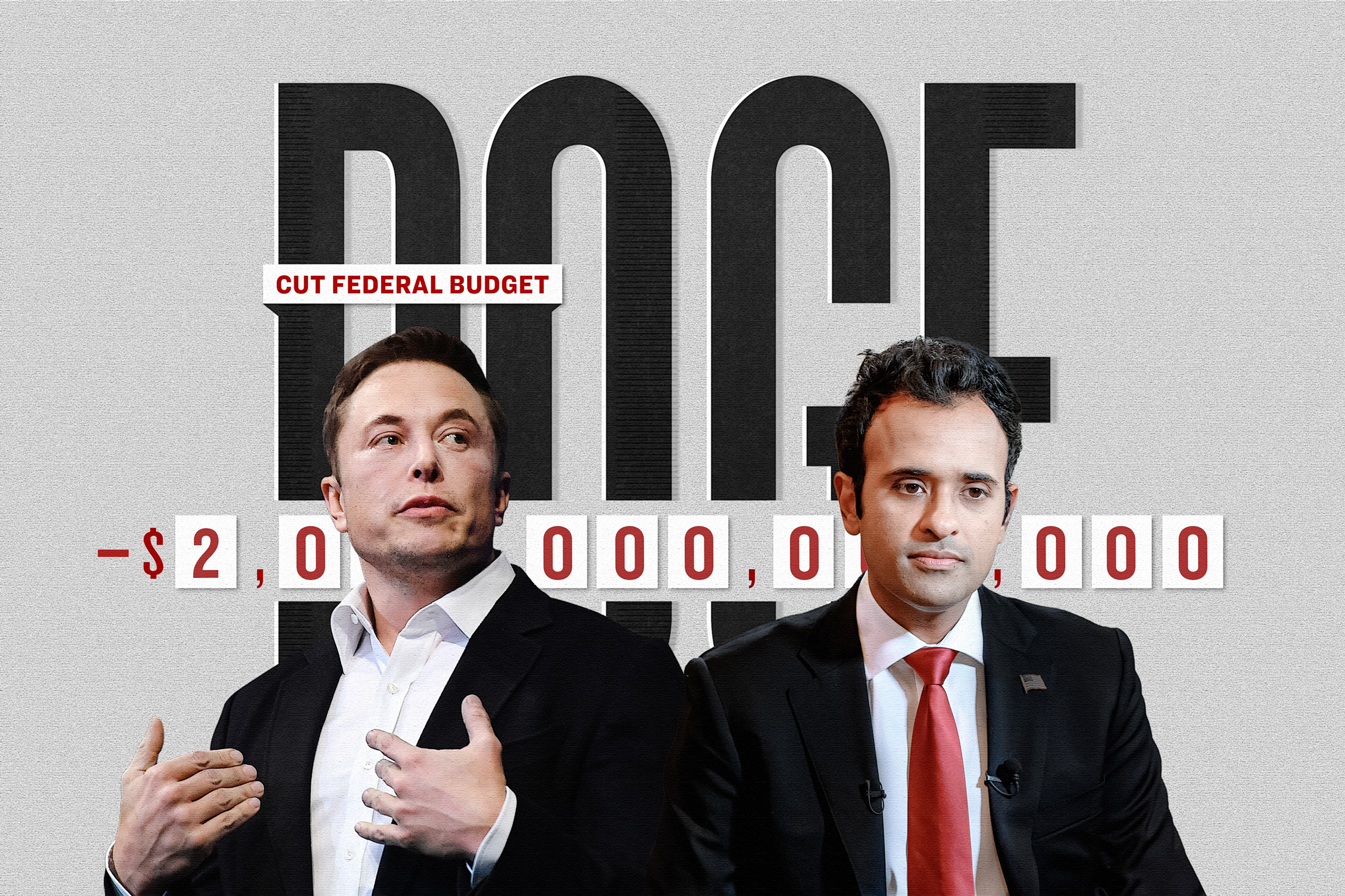President-elect Donald Trump is set to launch the new Department of Government Efficiency (DOGE), which he introduced during a pre-election interview on billionaire Elon Musk’s social media platform X.
Musk and former Republican presidential candidate Vivek Ramaswamy will co-chair the effort, which aims to slash $2 trillion from the roughly $6.75 trillion federal budget, hack through a labyrinth of executive branch regulations, and reform or remove entire federal agencies.










